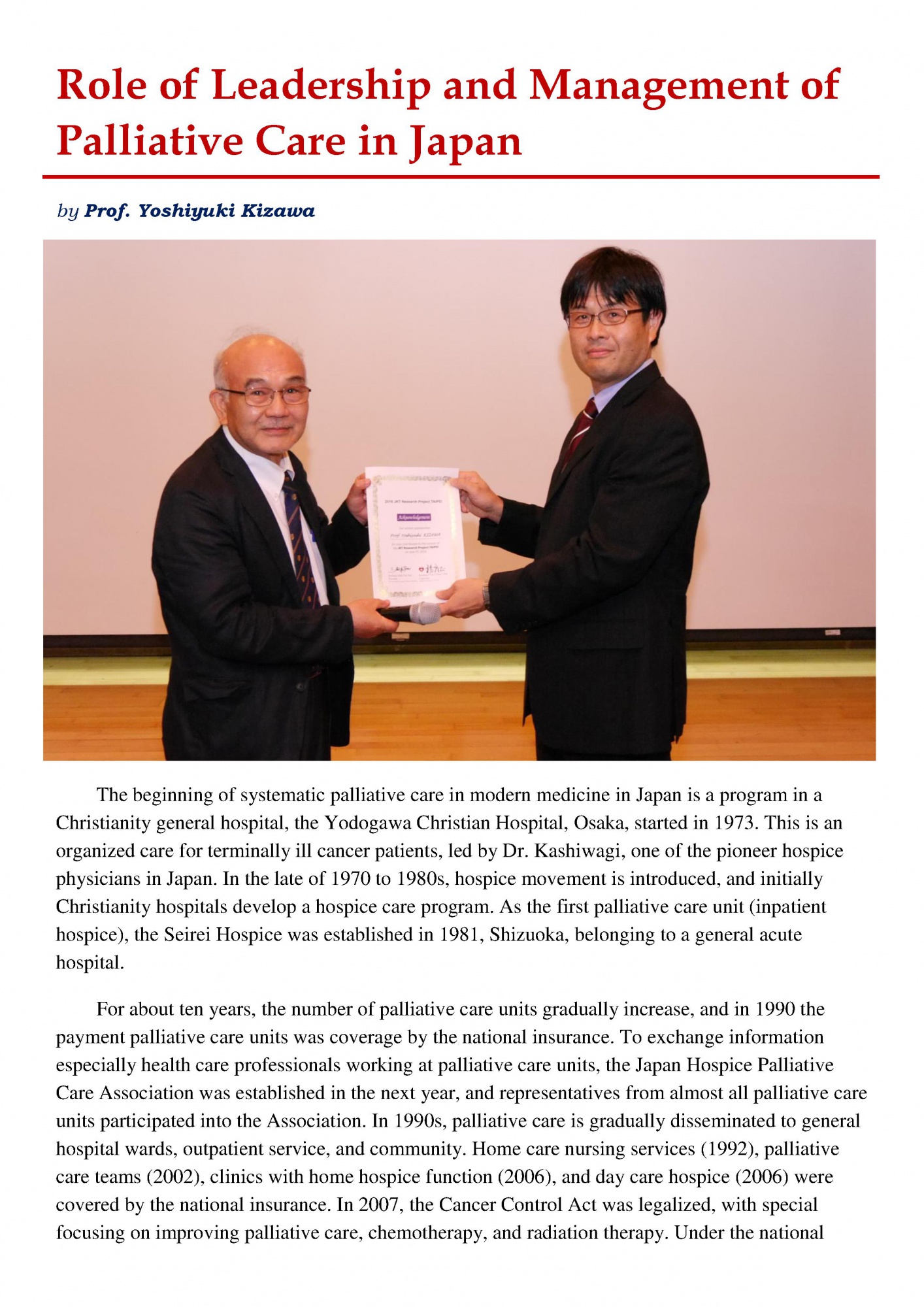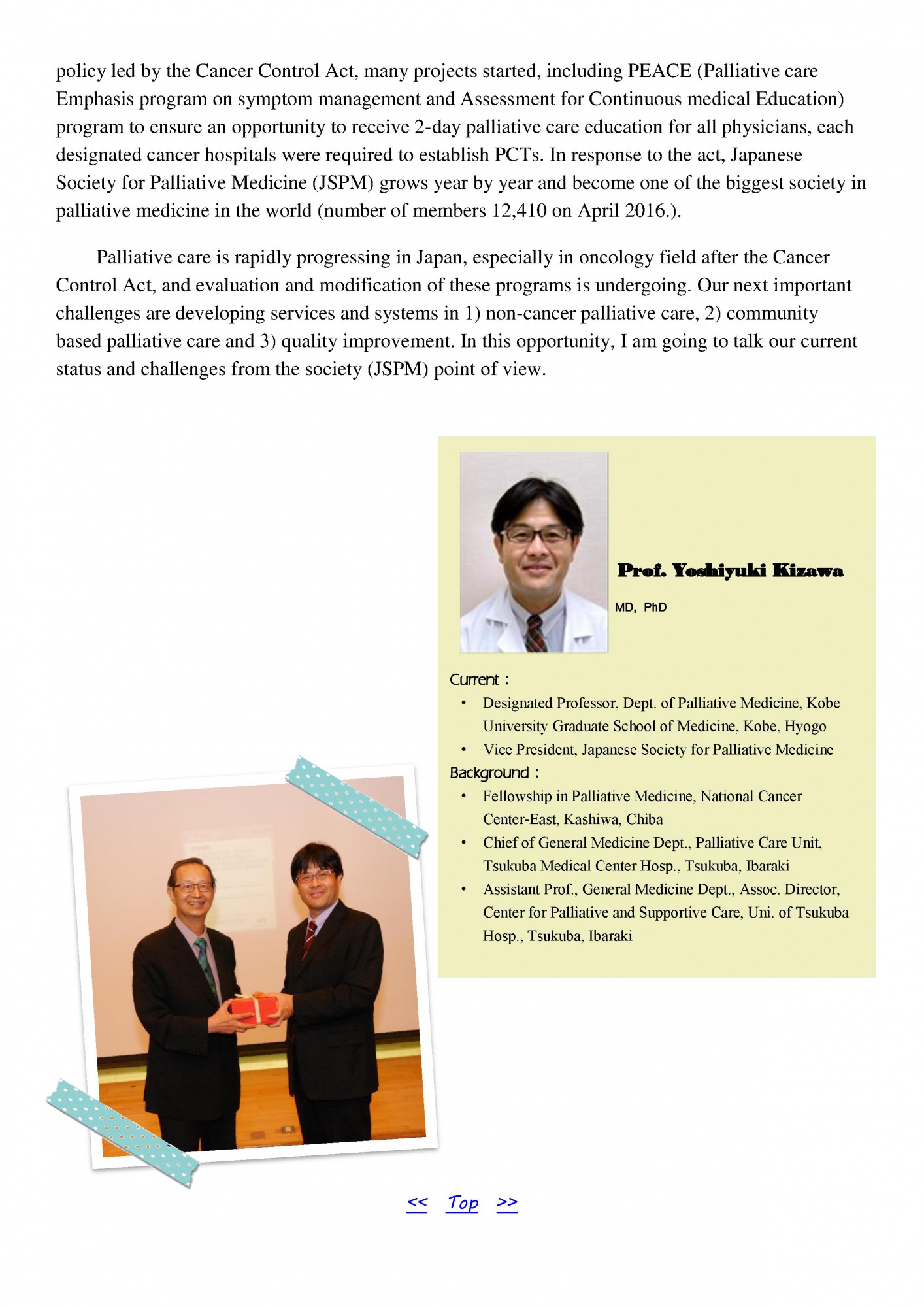The beginning of systematic palliative care in modern medicine in Japan is a program in a Christianity general hospital, the Yodogawa Christian Hospital, Osaka, started in 1973. This is an organized care for terminally ill cancer patients, led by Dr. Kashiwagi, one of the pioneer hospice physicians in Japan. In the late of 1970 to 1980s, hospice movement is introduced, and initially Christianity hospitals develop a hospice care program. As the first palliative care unit (inpatient hospice), the Seirei Hospice was established in 1981, Shizuoka, belonging to a general acute hospital.
For about ten years, the number of palliative care units gradually increase, and in 1990 the payment palliative care units was coverage by the national insurance. To exchange information especially health care professionals working at palliative care units, the Japan Hospice Palliative Care Association was established in the next year, and representatives from almost all palliative care units participated into the Association. In 1990s, palliative care is gradually disseminated to general hospital wards, outpatient service, and community. Home care nursing services (1992), palliative care teams (2002), clinics with home hospice function (2006), and day care hospice (2006) were covered by the national insurance. In 2007, the Cancer Control Act was legalized, with special focusing on improving palliative care, chemotherapy, and radiation therapy. Under the national policy led by the Cancer Control Act, many projects started, including PEACE (Palliative care Emphasis program on symptom management and Assessment for Continuous medical Education) program to ensure an opportunity to receive 2-day palliative care education for all physicians, each designated cancer hospitals were required to establish PCTs. In response to the act, Japanese Society for Palliative Medicine (JSPM) grows year by year and become one of the biggest society in palliative medicine in the world (number of members 12,410 on April 2016.).
Palliative care is rapidly progressing in Japan, especially in oncology field after the Cancer Control Act, and evaluation and modification of these programs is undergoing. Our next important challenges are developing services and systems in 1) non-cancer palliative care, 2) community based palliative care and 3) quality improvement. In this opportunity, I am going to talk our current status and challenges from the society (JSPM) point of view.


